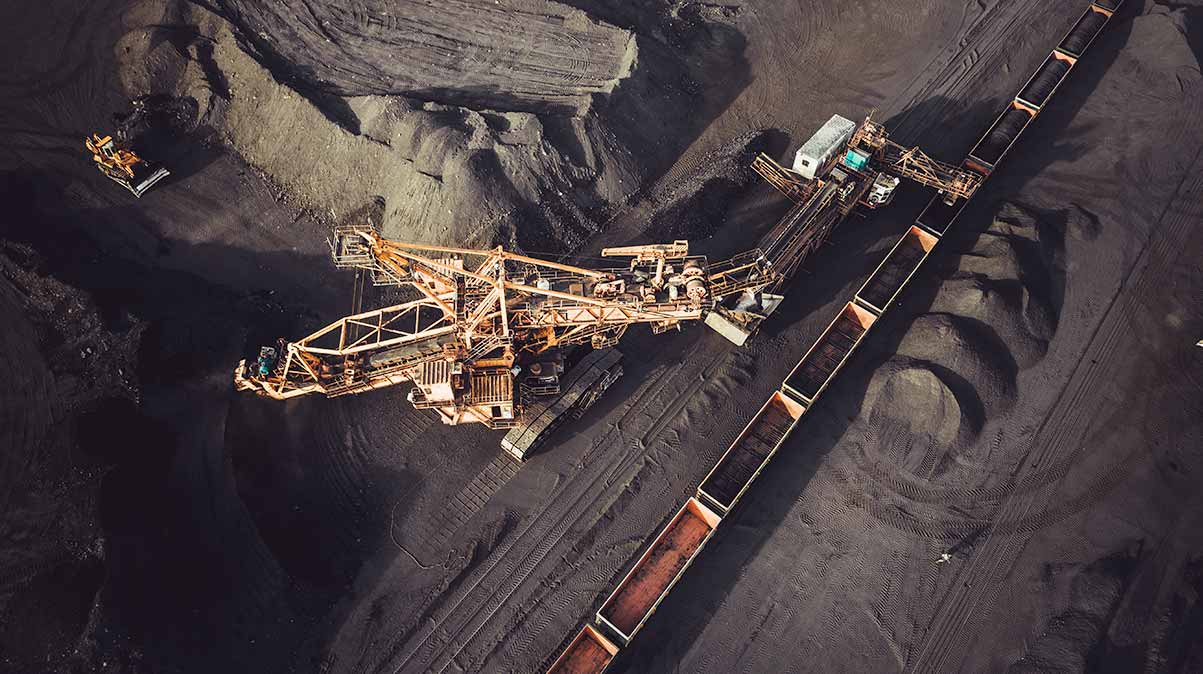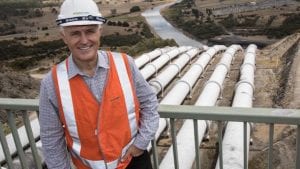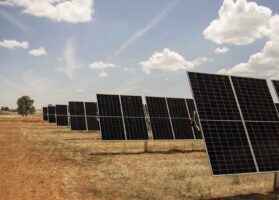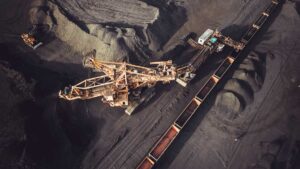Virtually all of Australia’s remaining coal reserves will need to stay in the ground to provide a 50 per cent chance of limiting global warming to just 1.5 degrees, new analysis has shown.
The results of new modelling, published in the leading academic journal Nature this week, show that dramatic and rapid reductions in global fossil fuel use are now necessary to keep global emissions to levels recommended by scientists as needed to avoid the worst impacts of climate change.
The analysis, prepared by researchers at the University College London, estimates that 60 per cent of the world’s oil and fossil gas resources must remain unburnt, and at least 90 per cent of global coal reserves must stay in the ground by 2050 to meet the Paris Agreement targets.
The research, led by UCL economist Dan Welsby, modelled the amount of fossil fuel extraction that can be accommodated while still providing a 50 per cent chance of reaching the goal of limiting global warming to 1.5-degrees above pre-industrial levels included in the Paris Agreement.
The researchers apportioned the amount of “unextractable” fossil fuel reserves by geographical region – based on remaining reserves and economic need – finding that for Australia and other OECD Pacific countries, at least 95 per cent of remaining coal reserves, 40 per cent of oil reserves, and 35 per cent of remaining gas reserves had to go unused.
The researchers suggest their estimates could even underestimate the proportion of unextractable fossil fuel reserves, citing the uncertainties around how the global climate may respond to rising temperatures.
“The bleak picture painted by our scenarios for the global fossil fuel industry is very probably an underestimate of what is required and, as a result, production would need to be curtailed even faster,” the research paper says.
“This is because our scenarios use a carbon budget associated with a 50% probability of limiting warming to 1.5°C, which does not consider uncertainties around, for example, Earth system feedbacks; therefore, to ensure more certainty of stabilising at this temperature, more carbon needs to stay in the ground.”
The researchers warn that countries and companies currently heavily reliant on fossil fuels need to reassess future scenarios and prepare for an accelerated pivot to clean energy industries.
“The need to forgo future production means country producers, fossil energy companies and their investors need to seriously reassess their production outlooks,” the paper adds.
“This is particularly true for countries that are fiscally reliant on fossil fuels, to allow for a managed diversification of their economies.”
“Many regions are facing peak production now or over the next decade, and the development of new low-carbon sectors of their economies that will provide employment and revenues will therefore be key.”
Director of the centre for climate economics and policy at the Australian National University, professor Frank Jotzo, said the research showed that the world was rapidly depleting remaining carbon budgets.
“Humanity is not running out of coal, oil or gas; instead we are running out of options for the waste product carbon dioxide,” Jotzo said.
“This study is a reminder of just how little room there is for the continued use of fossil fuels, if the world is to succeed in limiting global warming to levels that might be safe. This is not a new insight, with shrinking carbon budgets having been computed for many years.”
The new research highlights the amount of pressure that fossil fuel heavy economies like Australia will face as the global economy seeks to transition away from fossil fuel use and international peers work towards the decarbonisation of their economies.
Australian National University senior lecturer Dr Rebecca Colvin said the research highlighted the importance of proactive energy policy that embraced the need to transition to lower emissions energy sources.
“The global transition of the energy system from fossil fuels to low- or no-emissions sources will have significant effects on the regional communities with economies buoyed by the fossil fuel sector,” Dr Colvin said.
“Transitional support for the fossil fuel sector workers within the communities, as well as the communities more broadly, is essential. Transition planning is most successful when it is proactive rather than reactive, and led locally in line with local values and priorities rather than imposed from outside.”
The Morrison government has refused to set a specific target for reaching zero emissions, and instead has actively embraced the fossil fuel industry, supporting its ongoing expansion in Australia.
Earlier this week, federal resources minister Keith Pitt – in response to new UN calls for developed countries like Australia to abandon coal by 2030 – praised the Australian coal industry, saying that he expects that it will be “a significant contributor to the Australian economy well beyond 2030”.
“The future of this crucial industry will be decided by the Australian Government, not a foreign body that wants to shut it down costing thousands of jobs and billions of export dollars for our economy,” Pitt said.
“The Coalition Government stands with our resources sector, including the coal industry.”
Federal environment minister Sussan Ley recently granted environmental approvals to expand the Russell Vale coal mine, located north of Wollongong.
However, responding to the new research, emeritus professor of science, technology and society at Griffith University, Ian Lowe, described the ongoing expansion of Australia’s coal industry as “criminally irresponsible”.
“This new research refines and emphasises what we have known for a long time: to avoid catastrophic climate change, most of the known fossil fuels will have to be left in the ground. That is one form of carbon capture and storage that has been proven to work,” Lowe said.
“It demonstrates that it is criminally irresponsible to propose opening new coal mines or gas fields. It is not just the Adani mine that should be abandoned, but the entire ill-conceived idea of mining the Galilee Basin.”








